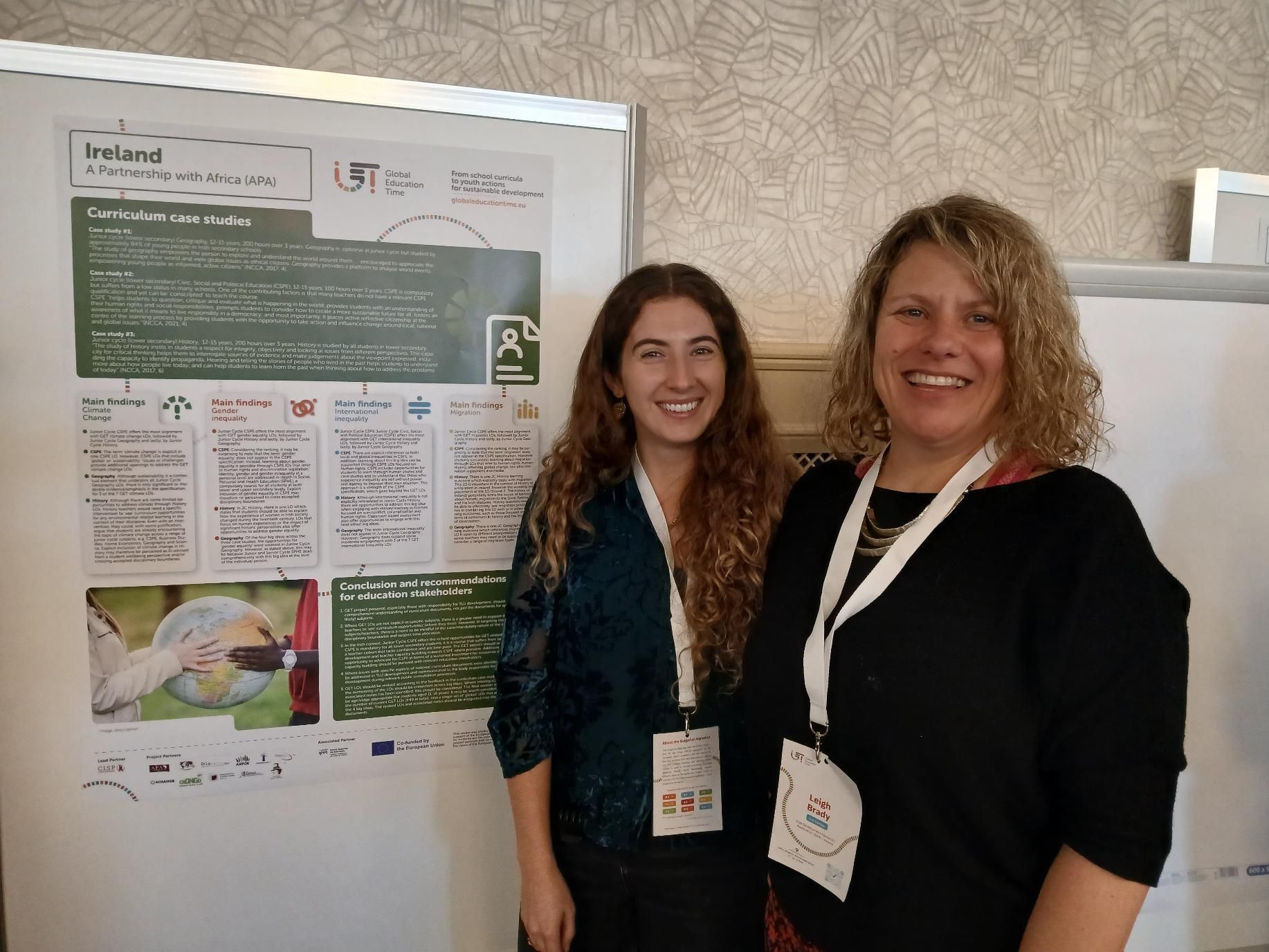IDEA represented at European Global Citizenship Education Conference in Sofia, Bulgaria

IDEA’s Policy and Advocacy Manager, Leigh Brady and IDEA’s Code of Good Practice Support Officer, Áine Boyle spoke at a European conference on Global Citizenship Education in Sofia, Bulgaria on 15-16 October. The conference, “It’s Global Education Time: sharing Global Citizenship Education policy, research and practice”, was organised within the scope of a DEAR-funded project, It's Global Education Time, involving eight European countries: Ireland, Greece, Italy, Portugal, Spain, Poland, Czech Republic and Bulgaria. It brought together key stakeholders in the education field: experts and researchers, policy makers, representatives of educational authorities, teacher educators, civil society networks, and European institutions.
The main focus of the conference was to share the findings of research, conducted across the eight project countries, on the integration of Global Citizenship Education (GCE) in educational policies and school curricula. The curricula research focused on history, geography, and civic education for students aged 11-16 years, and the results of both cross-country studies were presented and discussed during an engaging plenary session. This was followed by a tour of posters that summarised the main findings of each country report and an exercise to generate concrete ideas and commitments on how the research could be disseminated and used.
Other conference sessions explored recent policy developments, as well as challenges and opportunities for GCE in Europe, Latin America and at the global level. IDEA Policy and Advocacy Manager, Leigh Brady provided a short input on the synergy between GCE-related research and policy, emphasising that the drive for evidence-based GCE policymaking puts more of an onus on practitioners seeking to influence policy to undertake rigorous research that provides evidence to back their policy recommendations. However, Leigh also stressed the following point:
“To inform Global Citizenship Education policy that leads to meaningful interventions in learning spaces, research must include the lived experiences of those it is designed to serve. This includes learners, educators and school leaders as their voices help ensure that policy responds to real-time needs and challenges. Evidence-based policymaking is strongest when grounded in real-world experience, and the synergy between GCE-related research and policy is key to creating inclusive, relevant and impactful education systems. We remain committed to advocating for policies that are informed by both data and lived realities."
On day two, IDEA Code of Good Practice Support Officer, Áine Boyle, made a comprehensive presentation on the IDEA Code of Good Practice for Development Education, which generated a lot of interest from participants from other countries. Áine stressed that membership of the Code is voluntary and that rather than being a deficit-focused evaluation framework, the Code drives quality of Development Education/Global Citizenship Education via collective celebration of good practice examples. It runs on self-assessment by members combined with positive and constructive feedback from a panel of Code assessment reviewers. Áine shared many examples of Code members citing different benefits of being a Code member but highlighted one benefit that most Code members recognise:
“Most Code members underline that the Community of Practice created to support Code members is the biggest benefit of Code membership. IDEA hosts two Code Network Meetings per year and for the first time this year decided to organise both meetings in person, due to the how much Code members appreciate the opportunity of the in-person peer learning exchange.”
Áine also shared information on the Erasmus+ project that IDEA is co-implementing with LAPAS, the Latvian Platform for Development Cooperation, to inspire a Latvian Code of Good Practice for Global Citizenship Education, and welcomed participants to consider co-partnering with IDEA on future projects to expand the Code to more European countries.









